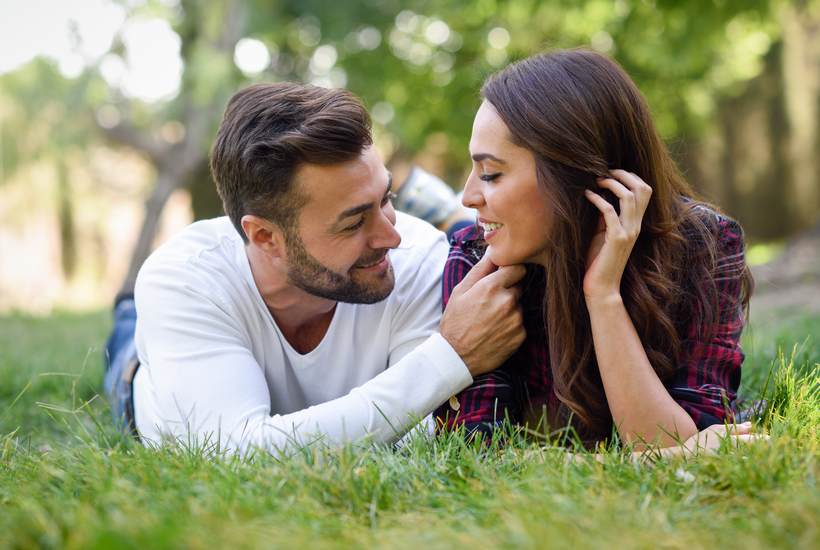Falling in love is an exciting and confusing time. You may be wondering if those butterflies in your stomach mean you’re starting to develop real feelings for someone new.
Here are 10 common signs that you may be falling in love
You Can’t Stop Thinking About Them
They’re always on your mind – you find yourself daydreaming about them, replaying your last conversation, or anticipating the next time you’ll see them. You may even imagine what dating them or being in a relationship with them would be like. This constant preoccupation is a telltale sign of romantic interest.
You Make Excuses To Be Near Them
Whether it’s changing your route to work to conveniently “run into them” or finding reasons to text or call them, you look for opportunities to be around them. Spending time together gives you a rush, and you crave more of their company.
Your Heart Races When You See Them
That surge of adrenaline you feel when they walk in the room or you hear their voice is one of the most common symptoms of falling for someone. Biological responses like sweating, trembling, and a pounding heart happen thanks to attraction chemicals flooding your system.
You Hang On Their Every Word
A clear sign you’re smitten is that you find everything they say fascinating. Even mundane stories become captivating when told by your crush, and you ask follow-up questions to keep the conversation flowing. You also remember trivial details about them that others might forget.
You Dress To Impress
You find yourself spending extra time picking out outfits and checking your appearance when you know you’ll see this person. Making sure you look attractive gives you confidence when interacting with someone you’re trying to attract.

You Get Jealous Easily
Even harmless interactions with the opposite sex stir up envy when you’ve got a crush. You don’t like to imagine them flirting with or dating other people. Possessiveness is normal during the falling in love phase.
You Forgive Their Flaws
All those pet peeves and deal breakers you claim to have go right out the window when it comes to your crush. You see them through rose-colored glasses, downplay their faults, and make excuses for their quirks.
You Seek Their Approval
Compliments mean more coming from the object of your affection. You fish for praise, validation, and signs that they return your feelings. Making them smile or winning their favor gives your self-esteem a boost.
You Can’t Keep Your Hands Off Each Other
Increased physical touch like hand-holding, caressing, and other displays of affection happen naturally as attraction grows. You find reasons to eliminate personal space and be physically close to each other.
You Can Talk and Listen For Hours
The conversation flows effortlessly once you establish a rapport. Getting lost in talk for hours without running out of things to say is a telltale sign you’re building an emotional bond.
Conclusion
The euphoria of falling in love can be an intoxicating experience. Your body and brain work together to produce an exhilarating high during these early romantic stages. Pay attention to the signs – from racing heartbeats to constant daydreaming – that reveal when you’re starting to develop feelings for someone new. Embrace the magic of the moment, but keep in mind that infatuation inevitably evolves into a deeper companionship love if the relationship is meant to last. Enjoy the thrill of the journey as your emotional bond blossoms.
FAQs
What are some signs you are starting to have real romantic feelings?
Signs include eagerly anticipating interactions with them, wanting to discover everything about them, dressing up when you’re going to see them, feeling energized in their presence, and feeling possessive or jealous of their other relationships.
How can you tell the difference between love and infatuation?
Infatuation is short-lived, intense, and solely focused on attraction and fantasies, while love develops more slowly, runs deeper, and extends beyond attraction to true knowing, commitment and care.
Why do some people fall in love faster than others?
Personality factors like romanticism, impulsiveness, and openness to intimacy play a role. Attachment style and relationship history influence comfort with closeness. Biochemistry and hormones can facilitate rapid attachment too.
Is constant butterflies and excitement sustainable long-term?
The obsessive high of early infatuation fades in all relationships to a calmer companionship love. But elements of exhilaration and passion can last when nourished by continued courtship and positive interactions.
How can you make falling in love lead to a lasting relationship?
Building intimacy beyond attraction, embracing each other’s flaws, communicating expectations openly, aligning core values early on, maintaining independence, and appreciating rather than idealizing each other all help.
